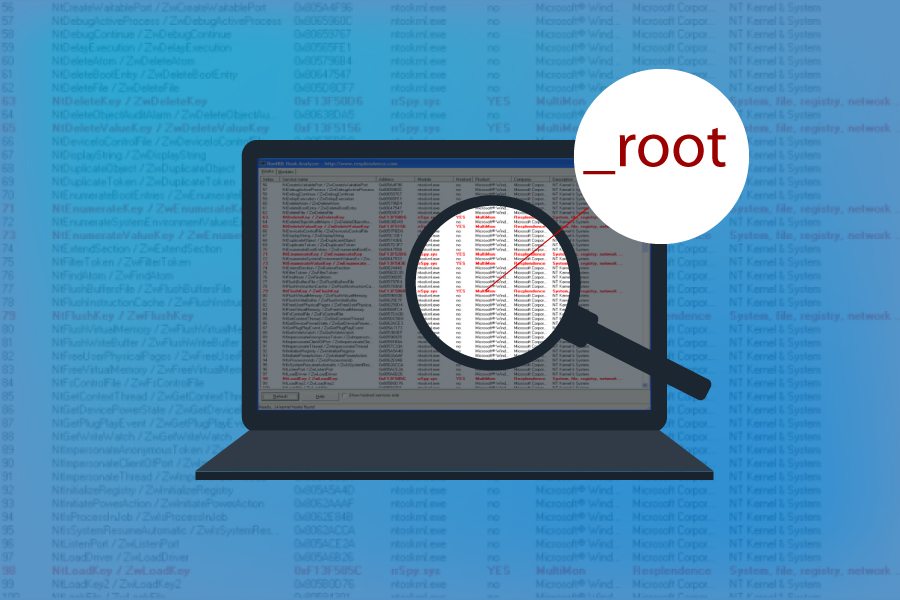What Is a Rootkit
What Is a Rootkit? The term “rootkit” stems from two words melded together: “root,” which refers to accounts with the highest privileges and “kit,” which implies a collection of tools.
A rootkit is a type of software that allows a user to gain access (authorized or otherwise) to a computer and control it. It basically acts as a backdoor that allows other software, often malicious, to enter the system.
What Is a Rootkit? Whereas viruses and worms are known for their destructive properties and fast self-propagation methods, respectively, a rootkit is characterized by its advanced cloaking techniques to conceal its presence (along with other software) from the user and antivirus software.
Rootkits desire to carry out their nefarious deeds on your system without you ever knowing. And it’s because of this concealed behavior that rootkits are often very difficult to remove. Rootkits are hard to detect; you may be staring right at it and yet have no idea it is malicious in nature.
What Is a Rootkit? A Rootkit may disguise itself as a genuine application (or an update of one) to fool the user into installing it? The developers can inject malicious code into their software, which allows rootkits to come preinstalled on purchased computers. Vulnerabilities in web browsers may also allow online servers to get past the computer’s defenses and install a rootkit without the user’s awareness.
A rootkit is a type of software that allows a user to gain access (authorized or otherwise) to a computer and control it. It basically acts as a backdoor that allows other software, often malicious, to enter the system. Whereas viruses and worms are known for their destructive properties and fast self-propagation methods, respectively, a rootkit is characterized by its advanced cloaking techniques to conceal its presence (along with other software) from the user and antivirus software.
What Is a Rootkit? Rootkits desire to carry out their nefarious deeds on your system without you ever knowing. And it’s because of this concealed behavior that rootkits are often very difficult to remove. Rootkits are hard to detect; you may be staring right at it and yet have no idea it is malicious in nature. A rootkit may disguise itself as a genuine application (or an update of one) to fool the user into installing it.
The developers can inject malicious code into their software, which allows rootkits to come preinstalled on purchased computers. Vulnerabilities in web browsers may also allow online servers to get past the computer’s defenses and install a rootkit without the user’s awareness.
How Can You Avoid Rootkits? A rootkit installed in your computer poses a serious risk to your security. You should prevent its entry in the first place and at all costs.
Find and install a robust security software with excellent real-time protection. Replace the built-in firewall of your computer with a more comprehensive, third-party solution to stop unauthorized users from gaining control of your computer. Ensure that your antivirus, firewall, other applications and even the operating system itself have their latest updates installed.
For more about computer viruses contact Teledata.



